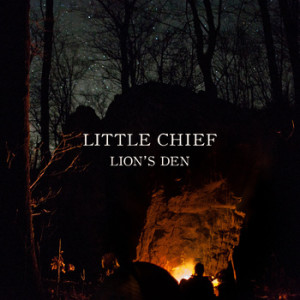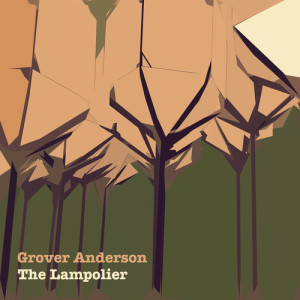
Sometimes sounds just feel right, like a crackling fire spreading warmth through the soul on a snowy winter night, or a sun burning daylight down on tall pines, or mountain tops glowing in the darkness. Grover Anderson taps into those sounds. With The Frontman, Anderson returns to the gold rush hills of his Americana roots in Calaveras County on his follow up to 2017’s From the Pink Room.
Grover Anderson and The Lampoliers (Marshall Henry – guitars, organ; Anthony Delaney – bass; Josh Certo – percussion) bring eight songs to life with lush, majestic beauty. The backing band craft the foundation of this storyteller’s saga of life and love, while an array of guests color tracks shifting through folk, country and Americana.
Wandering into The Frontman, “The Good” brings on a sense of ease and comfort with each note. This is no-pretense traveling music, as the violin and authentic songwriter vocals bring to mind the great Glen Campbell (“Wichita Lineman”) who painted soundscapes that surpassed the confines of genre. Austin Broder (of The Risky Biscuits) lends his fiddle to the composition. I’m not a huge fan of country music, but If that song is country music, I am definitely a fan of that.
Anderson lays the lyrical imagery and wit on thick in “Standing Water.” The musical poetry with twang sounds like Lukas Nelson and The Promise of The Real. Henry’s guitar soars perfectly, leaving space for guest Chelsea Sue to sprinkle in a feminine vocal touch. “Parallel” welcomes guest Kiel Williams (of The Risky Biscuits) on pedal steel. Tangible angst bleeds through simple words. Uncluttered, this cut has room to feel pain. Most everyone has known a broken heart and the space left between two hearts that once beat together.
In the world of storytelling, each chapter has its perfect place. Sequencing plays an integral part in The Frontman. Uptempo redemption breathes on the rapturous symphony of “Evergreen.” Joining Anderson’s vocal with Nathan Semprebon’s (of The Risky Biscuits) is genius, plain and simple. Broder’s fiddle joins Jimbo Scott (of Poor Man’s Whiskey) on this gem. Reminiscent of Jason Isbell’s textural “Last of My Kind” from 2017’s The Nashville Sound, this track combines the best of Americana, roots and country into something cool.
A soft resting place, “On Comfort” brings back images of great singer-songwriters like James Taylor who needed few words and less time to say what needed to be said. This acoustic flicker is not to be underestimated. Wandering towards the end of a rich record, fourteen-year-old Joshua Swank plays cello alongside Broder’s fiddle on “The Archives.” The vocal delivery brings Glen Campbell back to life again. This time, however, this song haunts the soul on another level as each metaphor unfolds. Each note speaks volumes, reinforcing the musician’s vision.
“Wasps” features guests Nate Nathan on piano and Williams on electric guitar. The band delivers a honky-tonk vibe and a downhome groove, but this ain’t no “tears in my beer” country tune. Instead it’s more of a “throw your dog in the truck with the kids and ease on down the road, it’ll be alright” sort of track. Closing out with the title track, “The Frontman” is brilliant. Grover Anderson and The Lampoliers really want to leave an honest impression of who they are as a band.
Anderson is a storyteller extraordinaire. In From the Pink Room, Anderson told his fans how this troubadour got his wish. Now, The Frontman gives listeners an idea of how the view has changed after stepping into the sun. This album makes me curious to hear what happens next with Anderson’s work.–Lisa Whealy


